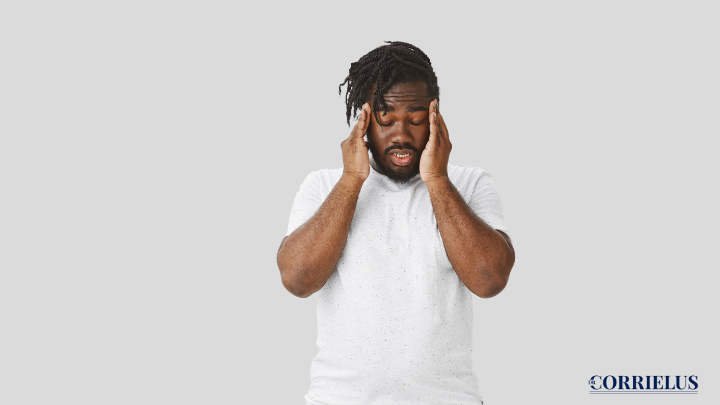Lack of attention to your body’s demands increases your risk of relapsing if you have major depressive illness.
Potential Problem 1: Thinking that Depression is a Sign of a Moral or Personal Failing
The idea that people have any control over whether they have MDD is a significant MDD myth. People with MDD frequently blame themselves for how they feel.
Knowing that depression is not a personal or moral failure can assist in de-stigmatize this condition, even while the cause does not lessen the suffering of experiencing it.
Potential problem 2: Neglecting your Physical Health
It may be difficult for you to even get out of bed if you have MDD, let alone take care of your body’s needs like personal hygiene, nourishment, and exercise. Fatigue and lack of energy are major symptoms of MDD. Even though it won’t make your sadness go away, paying attention to such things can make you feel much better.
Your depression symptoms may get worse if you ignore your body’s requirements and push it over its breaking point.
Many self-care techniques could be beneficial:
- Try to work out at least five days a week.
- Eat more lean proteins, whole grains, fruits, and veggies.
- Maintain decent sleeping habits.
Potential Problem 3: Evaluating Yourself Based on Your Mood
People with MDD frequently criticize themselves for how their depression impacts them and their daily functioning. But, dealing with your symptoms or criticizing yourself for having depression can make living with the condition even more difficult.
Potential Problem 4: Separating Oneself from Loved Ones
In MDD, social disengagement is a defining symptom. Even if it can be difficult to try to be present with others, it’s still crucial to stay in touch with those who are close to you, even if only by a brief text or Zoom call.
The benefits of social engagement with loved ones extend to the brain. Our posterior pituitary gland releases oxytocin that has been stockpiled while we are with family and friends.
Potential Problem 5: Attempting to Ignore Your Emotions
Having feelings of shame, unworthiness, loneliness, and despair is common for those with MDD. While trying to suppress these emotions can be difficult, doing so just makes the situation worse. It can make you feel worse and make you want to keep suppressing those feelings, which can start a vicious cycle.
As long as they don’t completely engulf you, you spend some time contemplating these emotions. You may also discuss them with your mental health professional, who can offer coping mechanisms.
Potential Problem 6: Seeking Comfort in Alcohol or Drugs
Misusing things like alcohol and drugs is one action people frequently take to avoid unpleasant emotions. In fact, having a substance use disorder in addition to MDD is quite frequent.
While drinking or using drugs may feel nice at the time, they frequently have negative long-term effects. It is very simple to reach for that alcoholic drink to ease internal agony or to try to get an immediate high from a recreational substance, but doing so will probably only make things worse.
A word from the doctor —
It’s crucial to let your doctor know if you struggle with using substances to cope with your mental health issues, especially if you use antidepressants because this could result in dangerous drug interactions. Also, if you believe you may have a substance use disorder, your doctor might be able to recommend dual diagnosis treatment programmes that can teach you how to manage both your substance use disorder and MDD.
Depression isn’t simply a case of the colors, and you can’t immediately “jump out” of it. Long-term treatment may be necessary for depression. But resist giving up. With medicine, counseling, or both, the majority of depressed persons get improved symptoms.
Schedule a consultation with Dr. Sanul Corrielus right away if you have questions about your heart health!



